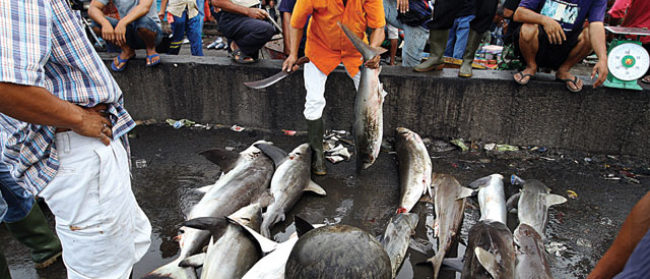A few days ago it emerged that more than 100 people from a district in Battambang had tested positive for HIV. A number of theories have been discussed as the reason for the outbreak, including malpractice by the local doctor, but when Prime Minister Hun Sen spoke to the press yesterday he cast doubt over the result’s validity.“
Right now, 99%, I don’t believe it’s AIDS,” Hun Sen was quoted as saying in the Phnom Penh Post, referring to AIDS instead of HIV. “They might have a virus, but it’s not AIDS… Can an 80-year-old person get AIDS? And can young people who do not know anything get AIDS?”
“I don’t know why he made those statements. My interpretation is that he has been badly misinformed,” Françoise Barré-Sinoussi, who won the Nobel Prize in Physiology or Medicine in 2008, told Southeast Asia Globe on the phone from France.
Since Hun Sen’s comments, various health agencies, including UNAIDS and the Institut Pasteur in Cambodia, have stated that there is little doubt over the tests’ accuracy.
According to Barré-Sinoussi, for now, senior public figures should concentrate on reassuring the public. “We need the voice of both the prime minister and the king,” she said. “They need to calm people, tell them that the authorities will investigate what happened and that victims will get the best possible treatment. They need to reassure the people.”
The issue was first publicised in November, when a 74-year-old man from Roka village in Sangke district, Battambang province, was found to be HIV positive after undergoing tests at the local health centre. After discovering this news, he persuaded his granddaughter and son-in-law to also undergo tests, which returned positive. Dozens of others from his village received the same diagnosis.
Earlier this month it was then revealed that more than 100 people from Sangke district had tested positive for HIV. Numerous NGOs and health officials visited the area and, according to statistics released by the National AIDS Authority, 106 out of 895 people examined were found to be HIV positive.
There is now speculation that the local doctor, who is allegedly unlicensed, caused the outbreak after reusing infected needles when treating patients. The doctor has since been taken into police custody for his own protection.
According to Barré-Sinoussi, public anger is detrimental to the case and rational steps need to be taken. “The first thing to do is to clarify exactly what has happened,” she said. “People shouldn’t jump on this doctor – we need to understand the deeper problem and take into consideration why this could have happened. Most importantly, we need to let the authorities do their job.”
Teams from Cambodia’s health ministry, the World Health Organisation (WHO) and UNAIDS have been in the area since Tuesday.
“A complete investigation into this outbreak will be carried out with full technical assistance given by Institut Pasteur in Cambodia, UNICEF, WHO and UNAIDS,” said Cambodia’s health minister, Mam Bunheng. “We urge everyone to stay calm and avoid listening to or spreading rumours.”
At the beginning of this month, Hun Sen made a commitment to stop all new HIV infections in Cambodia by 2020. According to recent statistics by UNAIDS, it is thought that 75,000 people are currently living with HIV in Cambodia. However, the organisation’s estimates range from 41,000 to 130,000.
The prime minister received praise from organisations such as UNAIDS for pledging $3.7m of national funds to eradicating the spread of HIV. “The key to the nation’s success against HIV is a concerted effort by everyone, especially people infected and affected by HIV,” he said in a press conference at the time.


